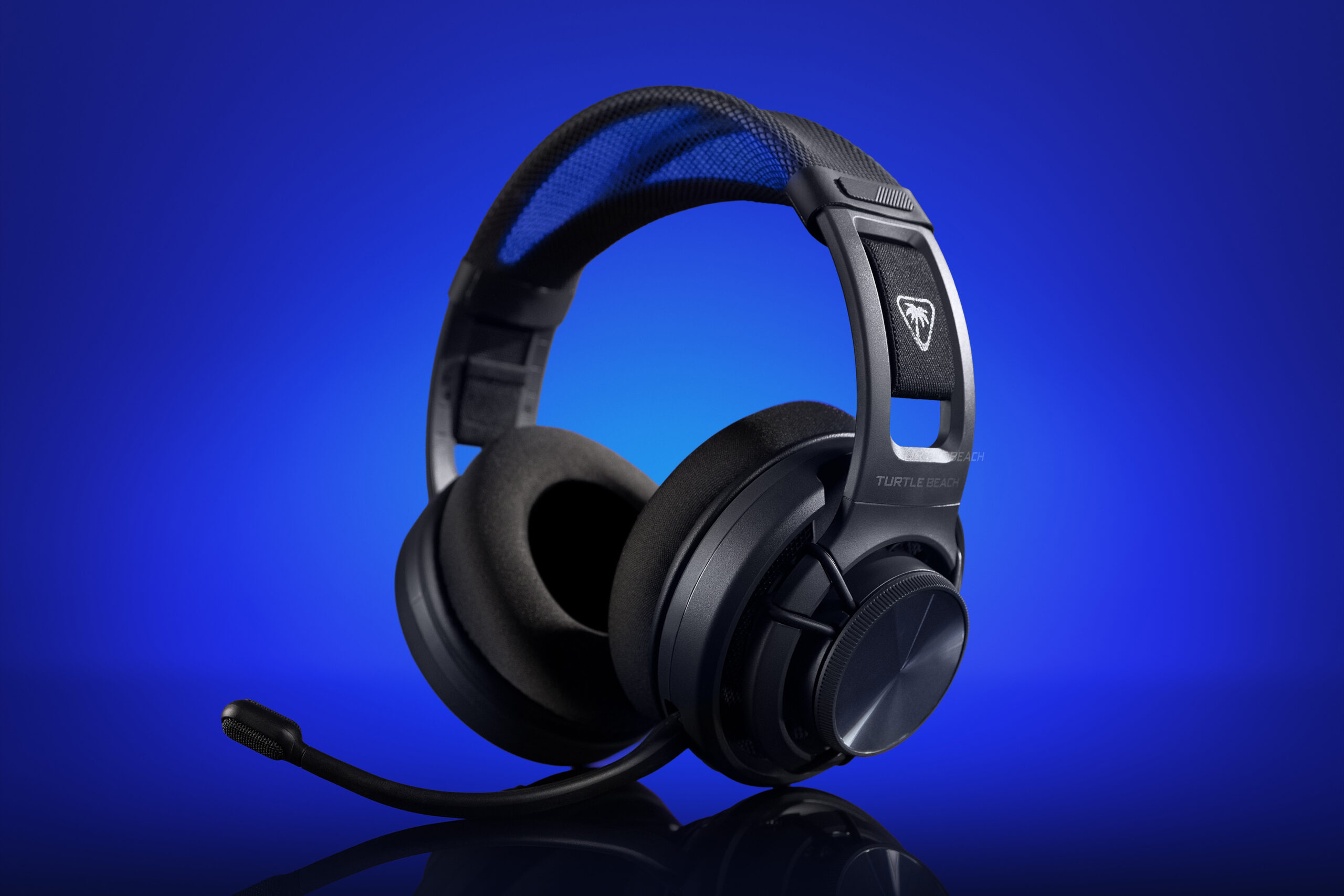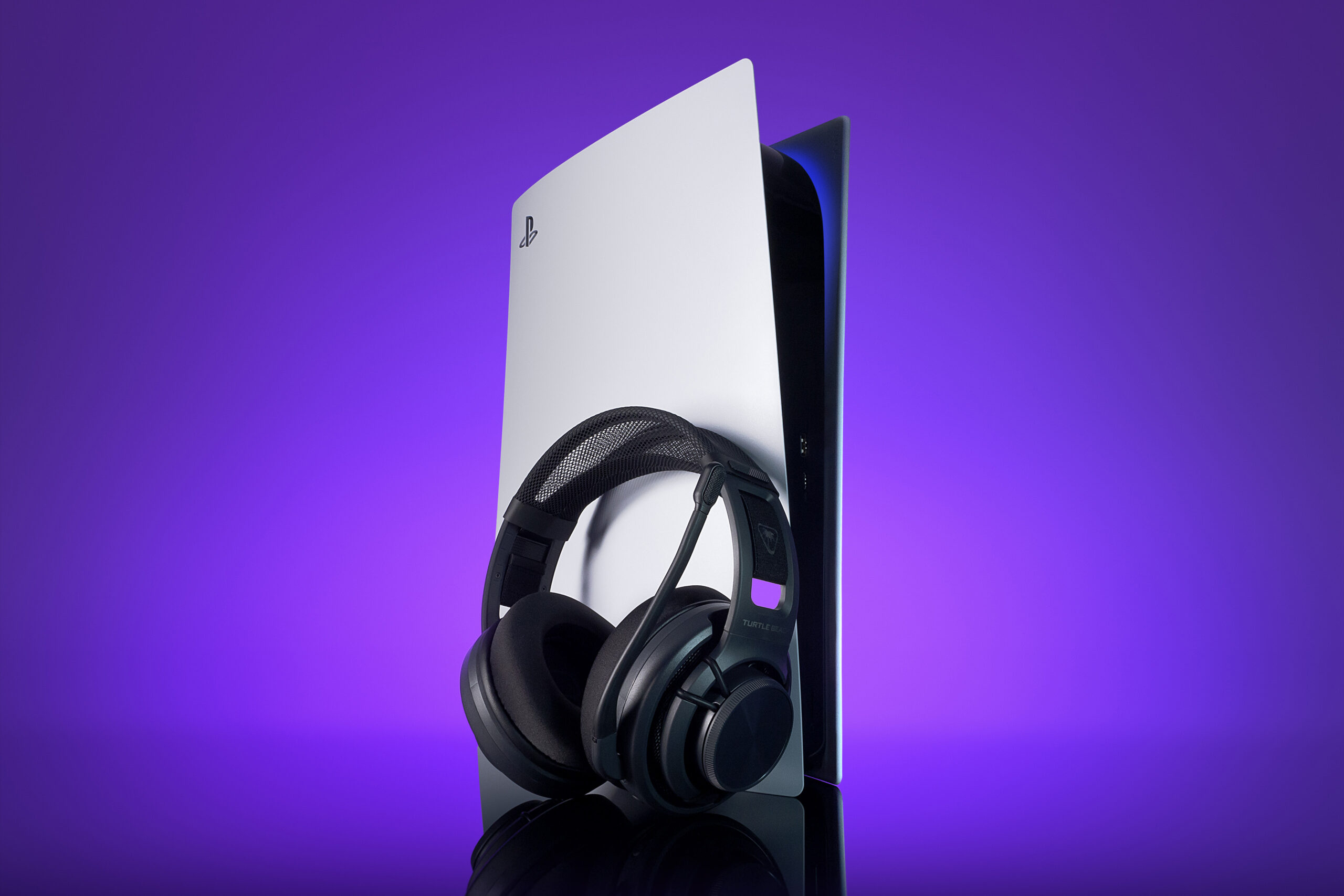Atlas Air Headset Review
Even after a couple of weeks of hard use, I am left with mixed feelings. The Turtle Beach Atlas Air headset offers a compelling array of features, some impressive sound, and are remarkably comfortable, especially with glasses on. Yet, some drawbacks hold this headset back from being considered a must-own.
First thing is first, the open-back design is pretty slick. For those who don’t know, an open-back headset features ear cups with perforations or grills that allow air and sound to pass through freely. It’s all about having a more natural and spacious audio experience. This design enhances the soundstage but allows ambient noise to enter, making it less-than-ideal for noisy environments.
The floating earcups do certainly provide an airy soundstage. The sound does feel more natural and less confined. Granted, I can still hear noise in the background and these cans have no ability to cancel out noise, but it does feel immersive and natural. Overall, I found the sound impressive and packed a punch despite some outside distractions.

At 301 grams, the headset is lightweight and super comfortable, with glasses-friendly memory foam cushions. Even after extended use, they never felt uncomfortable and my glasses fit nicely while hearing the headset. I could even slide my glasses on while wearing the headset, which I cannot do with other cans I own. The headset clamps onto my head with just the right amount of force.
The mesh headband is super comfortable as well. The adjustable floating strap can be tightened, so these cans should fit any sized melon. Not to mention, the headset itself is incredibly flexible. So I have no question it’s durable, especially over the long haul. It is certainly one of the more comfortable headsets I have used in some time.
Equipped with 40mm drivers, the Atlas Air delivers high-fidelity 24-bit audio quality. The ‘Waves 3D Audio’ feature, along with a 10-band EQ and Superhuman Hearing, provides a rich, immersive audio experience, perfect for gaming. The sound quality is excellent, with clear highs, detailed mids, and robust lows that make music and in-game sounds truly come to life.
The flip-to-mute mic with noise reduction and 32kHz high-bandwidth performance results in a mic that delivers clear communication. This is obviously crucial for multiplayer and co-op team-based games. Being an open-back headset I could hear my voice which threw me off at first, but eventually, I got used to it. My biggest complaint with the mic is that I cannot remove it. I thought I could just yank out the mic but unfortunately, it’s not possible. Sure it flips up but I would have preferred to have been able to un-attach it and I just wasn’t prepared to use an excessive amount of force to pull it out.
Connectivity is versatile, with low-latency wireless and Bluetooth options, plus a wired mode for flexibility. The QuickSwitch button allows seamless switching between wireless and Bluetooth modes, which is convenient for folks who multitask across different devices. The headset also boasts an impressive battery life of up to 50 hours, and the quick charge feature means you’re never out of action for long. The headset definitely scores high marks for its battery life.

The Swarm II desktop and mobile app offers an advanced 10-band EQ, allowing you to fine-tune the audio to your liking. This level of customization is a standout feature and nice touch for those who like to tinker with their audio settings. Personally, I was more than happy with the default out-of-the-box EQ settings. I didn’t need to tinker with anything at all, which is a nice plus.
However, the Atlas Air headset has its shortcomings. One major disappointment is I could not get it to connect to Xbox Series S and Xbox Series X consoles. I understand this could be a me problem, but I had no luck getting these cans to work with both my Xbox One consoles. For gamers heavily invested in the Xbox ecosystem, this is a significant drawback that can’t be overlooked. If you are looking for new cans for your Xbox, I would avoid these but for PC and PlayStation users, you’ll have no problems with connectivity as that dongle links up with your headset in a flash. The dongle does not work with Xbox and, for me, neither did plugging in the cord to two separate controllers. Maybe you won’t have this issue, but personally, I’d go with the Stealth 600 if you are looking for a new Xbox headset.
Additionally, for a headset priced around $180, there are a few missing features that I look for in more expensive headsets. Features like active noise cancellation, built-in surround sound without the need for external software, and multi-device connectivity with seamless switching are often found in competitors within this price range. The absence of these features might be a dealbreaker. It is for me when purchasing a new headset.
The Atlas Air headset excels in audio quality, comfort, and customization, making it a solid choice for PC, PS5 and Bluetooth device users. However, its inability to be used with Xbox consoles and the absence of some advanced features seen in similarly priced headsets may deter potential buyers. If you prioritize high-fidelity audio and comfort, and can overlook the Xbox console compatibility issue, the Atlas Air is worth considering. Otherwise, you might want to explore other options that offer a more comprehensive feature set for the price.
***Atlas Air was provided to COGconnected for the purpose of this review***
The Good
- Comfortable
- Great sound
- Glasses friendly
- Instant connectivity with PS5, PC and Mobile
- Comes with a storage bag
The Bad
- Could not get it working with Xbox
- No noise cancelling features
- Cannot simultaneously listen to your music while gaming
